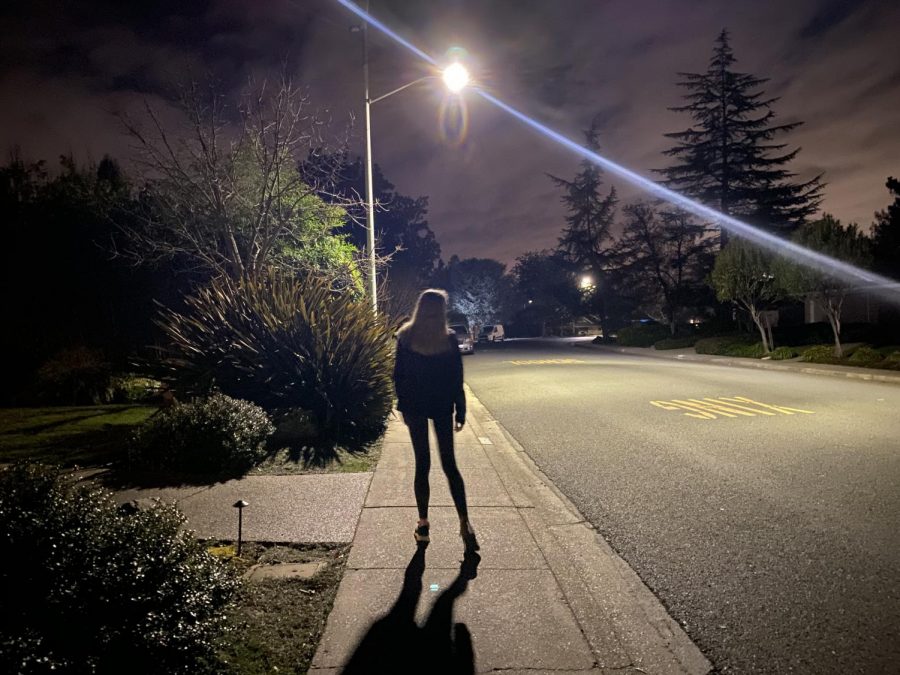Fear Should Not Be Symptom of Womanhood
January 14, 2020
Dear Tessa,
Right now, you should be strutting with your iconic green hair down a New York City sidewalk, calling your family in Virginia to tell them about your day, or pulling an all-nighter in your Barnard dorm with your whole life ahead of you.
But this has been taken from you by a teen boy with a knife.
Barnard freshman Tessa Majors was just 18 when she was fatally stabbed on December 11 while walking in a park near campus, according to the New York Post. 2 teen boys, aged 13 and 14, were the perpetrators of this brutal act of violence.
When I heard about Tessa’s murder, I was reminded that violence against women is virtually commonplace. Tessa was just 1 of the many women who face danger each and every time they set foot on the sidewalk alone.
While many believe that predation of lone females is an issue of the past, fear remains a symptom of womanhood. The societal attitudes and gender stereotypes that normalized this overarching culture continue to exist in our world.
According to Marshall University’s article about rape culture, this culture “is perpetuated through the use of misogynistic language, the objectification of women’s bodies, and the glamorization of sexual violence, thereby creating a society that disregards women’s rights and safety.”
Assault victims are often told that by wearing a certain style of clothing or behaving in a specific way, they are inviting these unwanted advances.
“Boys will be boys” is used as an excuse for inappropriate sexual advances, trivializing these behaviors.
In a study conducted by researchers from the Industrial and Labor Relations School at Cornell University, 84% of women report being catcalled before they reach the age of 17. This statistic reveals that even teenagers, who have yet to fully grow into themselves, are openly objectified by strangers.
As of 2012, women were found to be twice as likely as men to be fearful walking alone in their own neighborhoods at night, according to a survey conducted by the General Social Survey. In addition, many women forgo nighttime events or certain activities due to fear for their safety, something that men do not need to seriously consider.
Some may believe that such women are overly cautious, however, a report in Statistics Canada revealed that “women are more likely to be victims of violent crimes than men” and that 8 in 10 women were victims of a violent crime.
In addition, Victim Services Toronto’s executive director Bonnie Levine reported that for every 100 women who seek their victim services they see about 2 to 3 men, according to Global News.
The alarming truth of today is that many women continue to live their lives looking over their shoulders. While the world has continued to advance technologically, socially, and economically, gender-based discrimination and rape culture has persisted. All members of our society deserve to feel that their safety is not being compromised by individuals who victimize them based on their gender, but this is not the case.
Despite living in Moraga, as a 15-year-old girl, I do not feel entirely safe walking alone in my own neighborhood, especially after dark. As girls, we’re taught from a young age to walk in groups, to carry mace or pepper spray, and to beware of strange men.
Fear has been ingrained in us, further solidifying a culture that fosters fearful women instead of doing more to stop crimes against females. Word Health Organization published a global estimate stating that 1 in 3 women have experienced physical or sexual violence in their lifetime, a fact that only further confirms the disturbing societal norms.
With the turn of the decade, it has become exponentially important that women, along with men, refuse to be bystanders to the gender-based violence against women. Now is the time to reject gender-based discrimination and the social norms that violence against women and girls is rooted in.
The best way to change this culture is to focus on prevention by educating young people about gender bias and stereotypes, providing them with tools and expertise to understand the root causes of violence.
According to The Nation, “Rape culture exists because we don’t believe it does.”
The fact is that the problem can’t be solved until we address it openly, thus it is necessary to cease victim-blaming, share the stories of victims, and make examples of men who are found guilty of rape or assault against women.
While violence against women is ingrained in our culture, it doesn’t have to be. In Tessa’s case, the perpetrators of her attack are being charged as minors, despite their very adult criminal actions. As a society, we need to bring justice for victims like Tessa Majors and make examples of males who prey upon women.

